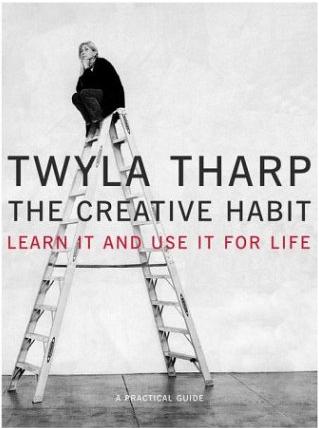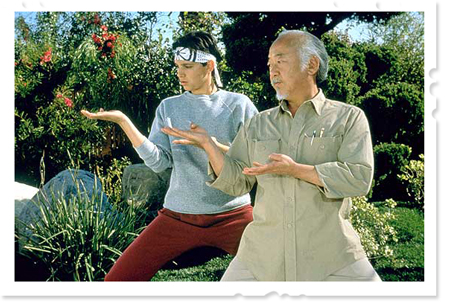
Just 5 minutes drive from where we live. The splendour of Rangitoto – a now dormant volcano.
Most people don’t take breaks.
They see it as counter-productive.
They’re wrong.
Breaks, when planned, are what makes your work productive.
And we plan our breaks every year, so our brains can boot down, and come back refreshed and renewed.
As I wrote in 5000bc:
I learned this from a friend, Julia. She books all her vacations in advance. Long before she knows what’s going to turn up in the year. Then the vacation becomes non-negotiable. I thought that was a cool idea. We’ve been doing it almost every year since 2004.
I found that vacations are not a nice-to-have. They’re a crucial part of relaxing the brain. The years when I’ve not taken a break, I’ve achieved less. And earned less.
Have a good break.
We certainly will. 🙂
You may not have heard of Paul Wolfe.
You may never hear of Paul Wolfe.
But someday soon Paul Wolfe will grow his business.
And by the time we finish with the year 2012, Paul will be extremely successful.
So what is this prediction based on?
You see Paul doesn’t have many subscribers to his website (At last count he had less than 20).
In fact, he just started doing YouTube Videos a while ago (Maybe a month or less).
And those videos have bad lighting. And aren’t something magical.
But the magic isn’t in the videos.
Or the subscriber list.
It’s in the daily routine.
You see, every night before he goes to bed, Paul writes down what he’s done every single day.
And the achievement for the day.
And every single day he’s doing a little bit more. And more. And even more, as you may expect.
Which tells me one thing.
I don’t care how talented Paul really is.
I don’t care if his videos never improve.
I know that he’ll succeed.
Because the DNA of successful people is exactly the same. They keep at it. They do stuff every day, and keep at it relentlessly.
Which is why this is my prediction for 2012.
Paul Wolfe will be running a reasonably successful business.
Despite the recession.
Despite the blah, blah.
Despite everything you hear.
He’ll do it.
Watch this space.
Or watch his videos.
http://uk.youtube.com/user/howtoplaybassdotcom
And here’s the reasoning why: http://www.psychotactics.com/artmastery

You may not follow baseball.
I don’t.
But there’s a really good baseball player called Alex Rodriguez (often called A-Rod).
He was always headed to be a good player.
But he did something different than most of us.
He decided to be great.
So how do you get to greatness?
http://freakonomics.blogs.nytimes.com/2008/03/11/how-did-a-rod-get-so-good/

Yes it should be. Because we learn best when we’re relaxed.
But most learning isn’t fun at all.
If I told you that you have to learn how to learn the new version of a program, would it be fun?
If I told you that you have to learn the chords to a new song would it be fun?
If I told you that you had to drive to a new part of town, would it be fun?
In most cases, it’s not fun at all
In most cases, the brain has to literally go into a focus mode, because the learning is new.
And that put enormous strain on the brain.
The more complex the activity, the more the brain needs to work out the steps and master them one by one.
And learning becomes difficult. Even tedious. Because you’re making so many mistakes.
Twyla Tharp is a world-famous choreographer and the author of the book: The Creative Habit.
In the book she talks about the fact that talent is created by habit. And that while habit doesn’t have to be routine, it has to be prepared for with routine.And routine often means doing the same thing over and over. And over again. Always tweaking. Always improving. But always aware that the fun begins once you’ve stopped making squillions of mistakes.
Of course this is a contentious topic
Because learning can be designed to be fun. And you can have lots of fun learning a new skill. But most learning isn’t fun.
Because most teachers/trainers/coaches take themselves so darned seriously. Which means there is the boredom factor. And you will run into that boredom factor. And if you can get over the boredom factor, you’ll get a factor of mastery.
And that’s when it will truly be fun.
P.S. When I learn a new shot in badminton, it’s not much fun because I have to learn two-three things to get that shot right. But as I master one thing, then the next, and then the next, I get more control; more mastery. And then it becomes fun. Of course what’s really a lot of fun is simply going into the game and winning all those points playing the shot well.

First you be disciplined. Then you be talented.
When I started playing badminton about three months ago, all the old ladies (who play crappy badminton) were giving me advice. Yes, I was playing so badly. And I paid attention, but only barely so.
You see, you have to know whom to listen to, and whom you have to nod your head to. So instead of taking too much advice from the old ladies (and believe me, no one but that batch was giving me advice) I started working with a coach.
So first we worked on:
1) The grip: 900 times x same shot.
2) The overhead shot: 900 times x same shot
3) The shuffle to the net: 900 times x same shot.
Then something happened.
I only knew three shots. But those three shots improved my game dramatically.
Within these three months, I’ve gone from being beaten in every game, to literally dominating the game no matter whom I’m playing with.
What’s interesting is that we have grades: I’m in the C grade.
There’s the A grade and the B grade.
And I’ve had a chance to play with the B grade.
And play decently well.
And the old ladies get beaten a lot, so they don’t come up to give me advice any more.
But something interesting has happened. The B graders give me advice.
The other day this Chinese guy, Ken Lui, came up to me and said: You’ll be good. But you must be disciplined.
Go down there. Take this shuttle and hit against wall for half hour.
I watch from here.
Then you become better.
So I took the shuttle and like wax-on and wax-off I hit it against the wall and practiced my reflexes.
I’ve been doing the same freakin’ thing every chance I get.
And guess what?
My reflexes are improving.
Now the B players are coming up to me, and saying: Hmmm, you’re getting better.
But the problem with efficiency is always the same.
You need to know what you’re doing wrong, to fix it.
Just looking at things unfolding means nothing. You can watch a game or hundred games, but you need to play.
And you need to make mistakes over and over, and over and over and over. And to make mistakes you have to do the same freakin’ thing or something similar, every darned day. You can’t do it now, and then sit on your you-know-what. You need to do it and do it and do it.
And make the mistakes.
Make them.
Over and over (Am I clearer?)
And you need a coach that points out the mistakes.
And helps you fix them, one by one.
Three important points:
1) You need to implement: Learning is crap by itself.
2) Mistakes must happen. And someone must point the mistakes.
3) Fixing the mistakes is to be done ONE by ONE. (Not altogether).
Most people simply learn.
That’s stupid efficiency.
Stupid. Stupid. Stupid.
They’ll go from one course to another. One coach to another. And get all sorts of advice.
They spend so much time flitting that there’s no time to learn.
They feel good about flitting.
Ah, I’ve learned so much.
Crap!
You’ve learned.
Learning is fine.
Implementation is important.
Mistakes are important.
If you’re not making mistakes you’re wasting time.
If someone is not around to point out the fixes, you’re wasting time.
You’re an idiot.
So how do I know this?
It takes an idiot to know one.
It’s what I did.
Then I found one person: Jay Abraham.
I studied everything I could for three years.
I bought all his courses. I got better.
I even paid for consulting with Jay’s right hand man ( I couldn’t afford Jay at $5000 an hour).
I paid $500 for the consulting (per hour).
Did it hurt me?
You bet it did.
Try paying $500 for advice per hour and see.
Especially when you’re earning $3000-5000 per month.
But I wanted efficiency.
And most people don’t.
They flit from coach to coach.
They flit from trend to trend.
They’re idiots.
And they wonder why they don’t have time.
It takes time for you to work out whom you want as a coach.
It takes time for the coach to work out who you are.
This is a lot of time that’s spent in getting to know each other.
Once you find someone you trust, spend 2-3 years with them.
If they are always ahead of you (Jay wasn’t — he lost the plot when it came to the Internet) then keep following.
Keep learning. But the real efficiency is in implementation. In making mistakes. Double your rate of mistakes and you double your rates of success.
Efficiency is important.
And it doesn’t come overnight.
It took me three months so far.
I’m in in for the long haul.
I want to beat them all.
The old ladies.
The C graders.
The B graders.
The A graders.
Mark my words. In a year, I’ll win the trophy.
Mark those words. I’m serious about getting efficient. And I’ll make it.
Are you ready for efficiency yet?
Depends on if you’ve found a coach, eh? And if you’re willing to hit the same shot 900 times.
Most people aren’t talented because they think it’s some magic trick.
Yes it is. Go do the same thing 900 times and get a coach to watch you do it, and help you fix it.
That’s the trick.
Note: Since I wrote this post, I qualified to be a B player. I had to play three other B players and get enough points to be within five points of the average (it’s too complex to explain). Let’s just say that in the qualification round, I not only came within the average, but beat the average by 5 points. And was second ranked in a group of four (yes, it is confusing). But there you go. I’m on my way, despite the aching back and knees. 🙂




